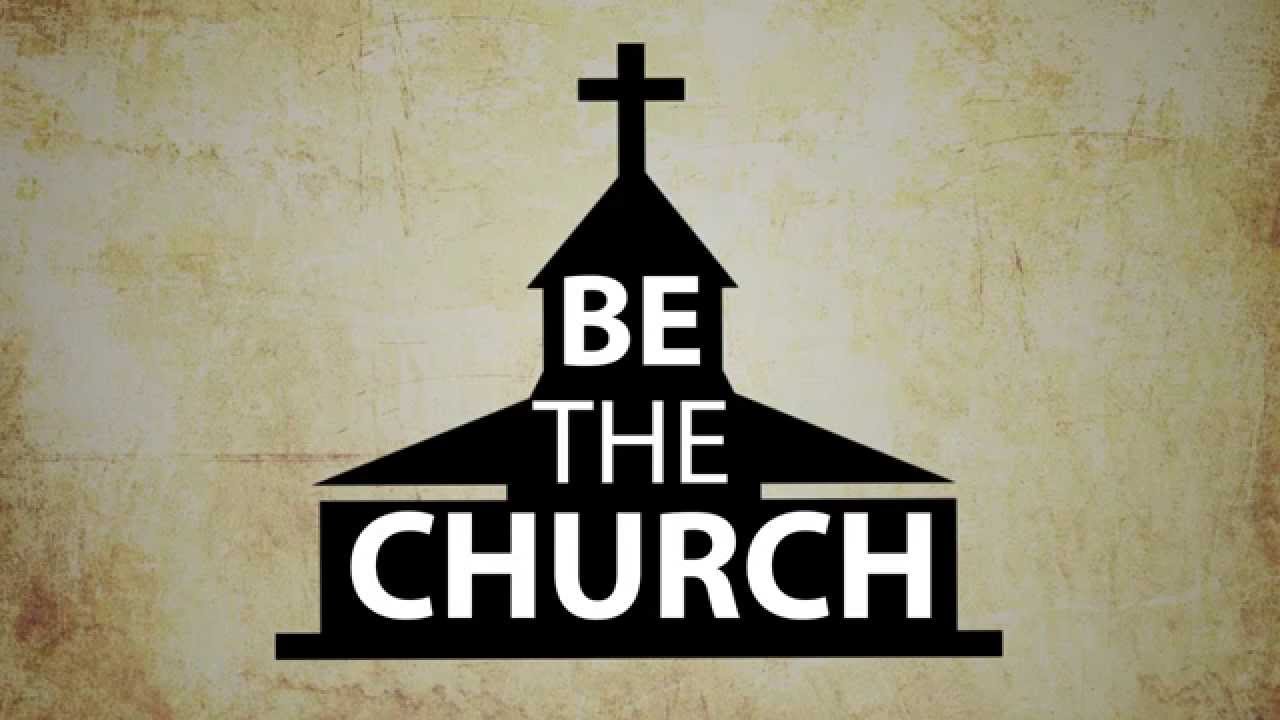The 10 blogs over 10 days didn’t really work out as planned. The preparations for this upcoming Vision meeting became a little overwhelming. The last post offered quick summary of an apparent “cycle” of church planting later in the book of Acts. After the Holy Spirit empowers the disciples, the church settles into a comfortable rhythm within Jerusalem. Unfortunately, it is possible they became too comfortable because they apparently were forgetting Jesus’ command to be witness in Jerusalem AND Judea AND Samaria AND to the ends of the earth. In order to “encourage” their movement, God allows the church to be persecuted. Without question, this is an attack of the enemy. It should give us great confidence to know that Satan’s attacks are always under God’s sovereignty and always employed for his purposes. We see that the persecution climaxes in chapter 8 with the martyrdom of the first Christian, Stephen. A young man named Saul is there presiding over the informal execution. The persecution results in Christians leaving Jerusalem to take the gospel elsewhere–God finds a way for his people to obey.
post offered quick summary of an apparent “cycle” of church planting later in the book of Acts. After the Holy Spirit empowers the disciples, the church settles into a comfortable rhythm within Jerusalem. Unfortunately, it is possible they became too comfortable because they apparently were forgetting Jesus’ command to be witness in Jerusalem AND Judea AND Samaria AND to the ends of the earth. In order to “encourage” their movement, God allows the church to be persecuted. Without question, this is an attack of the enemy. It should give us great confidence to know that Satan’s attacks are always under God’s sovereignty and always employed for his purposes. We see that the persecution climaxes in chapter 8 with the martyrdom of the first Christian, Stephen. A young man named Saul is there presiding over the informal execution. The persecution results in Christians leaving Jerusalem to take the gospel elsewhere–God finds a way for his people to obey.
Ironically, in the next chapter (9), the leading zealot is saved by Jesus. Saul the murdered becomes Paul the apostle. Chapters 10-12 are really about three different transitions or changes in the mission of God. We see the narrative move 1) from Peter to Paul as the key leader 2) from Jerusalem to Antioch as the key city, and 3) from Jews to Gentiles as the key focus of the mission. Beginning in Acts 13 then, Paul is commissioned by the church at Antioch (the first one helped to plant) for his first of three missionary journeys. From here, we begin to see a cyclical pattern of church planting emerge. Not only does it provide us a helpful guide about how to plant a church, it also helps us to understand where our church is in the cycle.
THE COMMISSIONING Acts 13.1-2
13 Now there were in the church at Antioch prophets and teachers, Barnabas, Simeon who was called Niger, Lucius of Cyrene, Manaen a lifelong friend of Herod the tetrarch, and Saul. 2 While they were worshiping the Lord and fasting, the Holy Spirit said, “Set apart for me Barnabas and Saul for the work to which I have called them.” 3 Then after fasting and praying they laid their hands on them and sent them off.
The mission always begins with a man or a group of men. While any assessment process is important, it is not the decisive determiner of whether a man or team is qualified to lead a church planting mission. What we read is that the Holy Spirit is the one who calls men to mission. Literally, the mission began when a team of preachers and teacher were worshiping and fasting. As they did this, the Holy Spirit spoke. Whether it was audible or not, we don’t know. But we know that they were all in agreement that He had called Saul and Barnabas. Several other things are noteworthy. First, they men were called out of a team of preachers and teachers. In other words, they already seemed to have a healthy rotation in this church. Secondly, they prayed and fasted again to confirm the call. This wasn’t an impulsive decision. Third, and most importantly, we see that the call was affirmed by the local church. They did not get approval, permission, or even affirmation from some organization–good or bad–outside the local church.
THE REACHING Acts 13 14-16
14 but they went on from Perga and came to Antioch in Pisidia. And on the Sabbath day they went into the synagogue and sat down. 15 After the reading from the Law and the Prophets, the rulers of the synagogue sent a message to them, saying, “Brothers, if you have any word of encouragement for the people, say it.” 16 So Paul stood up, and motioning with his hand said:
We see that the first thing Paul does on all of his missions is GO TO THE PEOPLE. Specifically, he made a practice of entering the synagogues in a given city. Synagogues at this time were not only centers of worship for the Jews, they were also centers of relationship for the community. Paul went to where the unbeliever people were and waited for his opportunity to share. The point is simply that Paul did not go and put up a sign for a new church. Rather, he engaged with the people in at the places they would naturally be gathering.
THE PREACHING Acts 13.17-41
“Men of Israel and you who fear God, listen. 17 The God of this people Israel chose our fathers and made the people great during their stay in the land of Egypt, and with uplifted arm he led them out of it. 18 And for about forty years he put up with them in the wilderness…. 26 “Brothers, sons of the family of Abraham, and those among you who fear God, to us has been sent the message of this salvation. 27 For those who live in Jerusalem and their rulers, because they did not recognize him nor understand the utterances of the prophets, which are read every Sabbath, fulfilled them by condemning him. 28 And though they found in him no guilt worthy of death, they asked Pilate to have him executed. 29 And when they had carried out all that was written of him, they took him down from the tree and laid him in a tomb. 30 But God raised him from the dead, 31 and for many days he appeared to those who had come up with him from Galilee to Jerusalem, who are now his witnesses to the people. 32 And we bring you the good news that what God promised to the fathers, 33 this he has fulfilled to us their children by raising Jesus,…
Quite simply, when given the opportunity, Paul preached the gospel (the verses are abbreviated above). Because he was speaking largely to Jews, he contextualized his message to his audience. He did not simply say, “Jesus died for your sins”, though he could have. Instead, he retold the story of the God from the Old Testament and proved that Jesus was the Hero of the story. This is what Paul and every church planter has to offer a new people, a new generation, or a new city. The message has been the same for 2,000 years, namely:
The gospel is not about what we must do to become good or to be saved. The gospel is good news, not good advice. The gospel is the news of something that has been done for us. The gospel is the historical public announcement of Jesus Christ has done through his death and resurrection to restore man’s relationship with God. It is news to report about what has changed; it is not an opinion to be disagreed with, it is good news to be received. Through belief in his death and resurrection, Jesus Christ of Nazareth has freed us from perfect obedience to God’s law and saved us from the curse of God’s holy wrath. Jesus has freed us from slavery to sin, and given us liberty. Jesus has freed us from our past life, and given us a new identity. Jesus has freed us from the fear of death, and given us hope in heaven. Though we were guilty, through faith, we have been declared innocent. Though we were dirty, through faith we have been declared clean. Though we were children of wrath hostile toward God, through faith we are declared adopted children of God irrevocably and loved unconditionally
I am not, therefore, defined by what I know, or what I do, what mistakes I’ve made, or what things I achieve, what family I’m from, or money I have. I am in Christ. I am saved, blessed, appreciated, reconciled, gifted, forgiven, new, and victorious. And because we live knowing who we are, we are free from having to find that in the world. And though we are free to do whatever we want in Christ, we live wanting to honor God in response to his love.
THE SAVING Acts 13.48 (16.14-15)
48 And when the Gentiles heard this, they began rejoicing and glorifying the word of the Lord, and as many as were appointed to eternal life believed.
When the gospel is preached, Jesus saves people. This is the power of salvation (Romans 1.16)
THE GATHERING Acts 13.444
43 And after the meeting of the synagogue broke up, many Jews and devout converts to Judaism followed Paul and Barnabas, who, as they spoke with them, urged them to continue in the grace of God. 44 The next Sabbath almost the whole city gathered to hear the word of the Lord.
Once people are saved, they gather together to hear the Word of God. Though we have a personal relationship with the Lord, we do not have a faith that is individual or private. We are the body of the Christ, the house of God, the family of our Lord. The church, literally the “assembly”, is the gathering of the disciples of Christ. The gospel brings us into a community in order to help us mature in Christ. We gather to learn, to love, to serve, to worship, and to help one another–there are over 30 “one another” commands of Jesus that prove impossible to obey unless we are actively living in community. After believers are converted, they are immediately baptized, and a church is born. Unlike many of today’s church plants built through redistributing the Christians in a community, Paul’s churches grew through conversion.
THE STRENGTHENING Acts 14.21-22
21 When they had preached the gospel to that city and had made many disciples, they returned to Lystra and to Iconium and to Antioch, 22 strengthening the souls of the disciples, encouraging them to continue in the faith, and saying that through many tribulations we must enter the kingdom of God.
With a group of new believers, new gathering would be like feeding newborns milk. Having received the gospel and been baptized as Jesus commanded, those who are mature in Christ has responsibility to teach them “All that Jesus Commanded.” This is not an overnight process. Paul would often spend several years in one location to strengthen the disciples and teach them the faith. According to Titus 1.5, there are things to “get in order” for a church to function as a church. More than once in his letters, Paul mentions traditions he has entrusted to the young pastors/elders. In other words, maturity in Christ had some structure to it.
THE APPOINTING Acts 14.23 (Acts 20)
23 And when they had appointed elders for them in every church, with prayer and fasting they committed them to the Lord in whom they had believed.
In time, Paul would depart the churches he planted. Before he did, he would appoint godly elders to lead the church. There are a couple other truths from Acts 14 and 20 worthy of noting with the establishing of elders. First, the elders were chosen from within the body. Pastors were not brought in, they were developed and trained. The church knew these men and so, we can assume, they trusted them. Second, the elders were appointed by those in authority. There does not appear to be any confirming votes by the congregation. According to Acts 20, through their laying on of hands, the Holy Spirit was the one doing the appointing. Finally, this is probably why the selection and installation of these leaders involves prayer and fasting. Because we know Paul himself experienced this same thing, we begin to see a pattern emerge.
There is certainly much more than can be said. But this short summary gives us some insight into how churches were planted, grown, and released to godly men to lead. Though there certainly variations to this cycle in a given context or situation, for the most part, the book of Acts provides us a solid guide for how all churches should endeavor to plant. Additionally, it gives us a helpful rubric to assess where we are at as a church and what exactly we are to focus on at the moment whether that be commissioning new leaders or strengthening the ones you have.




